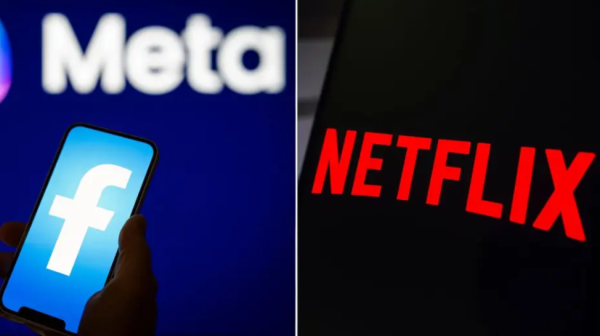The social media giant Facebook allegedly allowed Netflix to access Facebook users’ direct messages for nearly a decade, breaking anti-comp.The genesis of this saga traces back to the relentless pursuit of user data by tech behemoths. Netflix, known for its personalized recommendations and content curation, has been scrutinized for its data practices. Similarly, Meta, with its sprawling social media empire, has faced mounting criticism over privacy breaches and user tracking.
Consumers, alarmed by the extent of data collection and the potential for misuse, took matters to the courts. Lawsuits against both companies allege violations of privacy rights, arguing that users’ personal information was harvested without consent and exploited for commercial gain.
“The legal battle is multifaceted, with plaintiffs raising concerns ranging from invasive data mining to the manipulation of user behavior. They argue that Netflix and Meta have crossed ethical boundaries in their quest for user engagement and profitability” stated Fox Business News.
As the case progresses through the legal system, both sides are marshaling their arguments. Netflix and Meta, armed with teams of high-powered lawyers, are vehemently defending their data practices, citing user agreements and privacy policies as sufficient consent mechanisms.
“Central to the lawsuit is the issue of consent. Plaintiffs contend that they never consented to the extensive data harvesting practices employed by Netflix and Meta. Moreover, they argue that even if consent was obtained, it was not adequately informed, with users unaware of the full extent of data collection and its implications.” Said Fox News.
On the other hand, plaintiffs are seeking to redress for what they perceive as fundamental violations of their privacy rights. They are calling for greater transparency, stricter regulations, and accountability measures to safeguard user data in the digital age.
The outcome of this legal battle could have far-reaching implications for the tech industry and beyond. It will not only shape the future of user privacy but also influence the broader debate surrounding data ethics and corporate responsibility.

Full names, phone numbers, locations and birthdays of users who used the platform between 2018 and 2019 were leaked online by a “bad actor” who Facebook said exploited a security vulnerability, reports the Daily Mail.
That same year, Facebook agreed to pay $725 million to settle a security breach case related to Cambridge Analytica, a British social media engineering company.
Facebook has since taken steps to enforce their privacy guidelines, and update their privacy policies against corruptions from competition.The genesis of this saga traces back to the relentless pursuit of user data by tech behemoths. Netflix, known for its personalized recommendations and content curation, has been scrutinized for its data practices.








